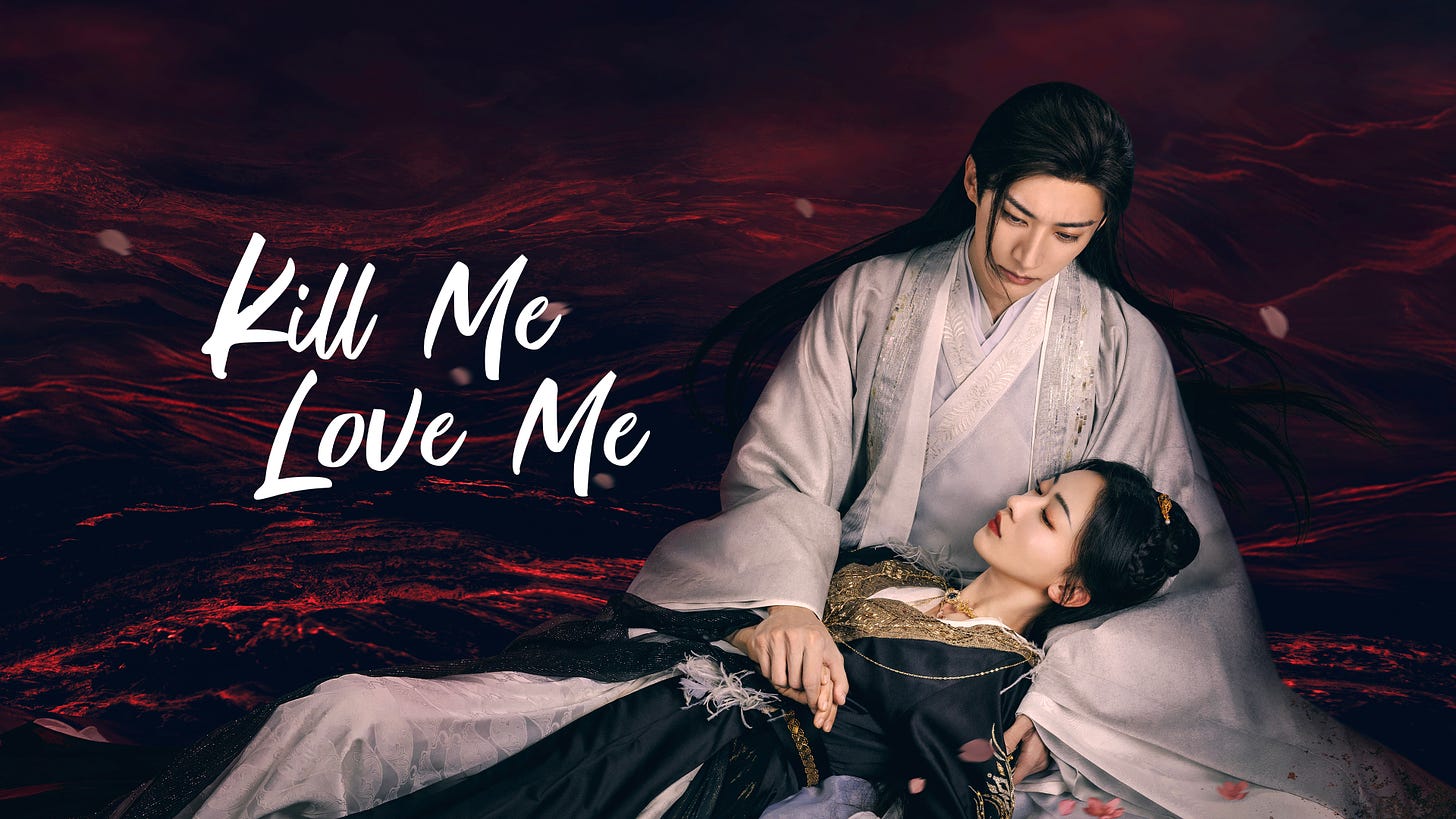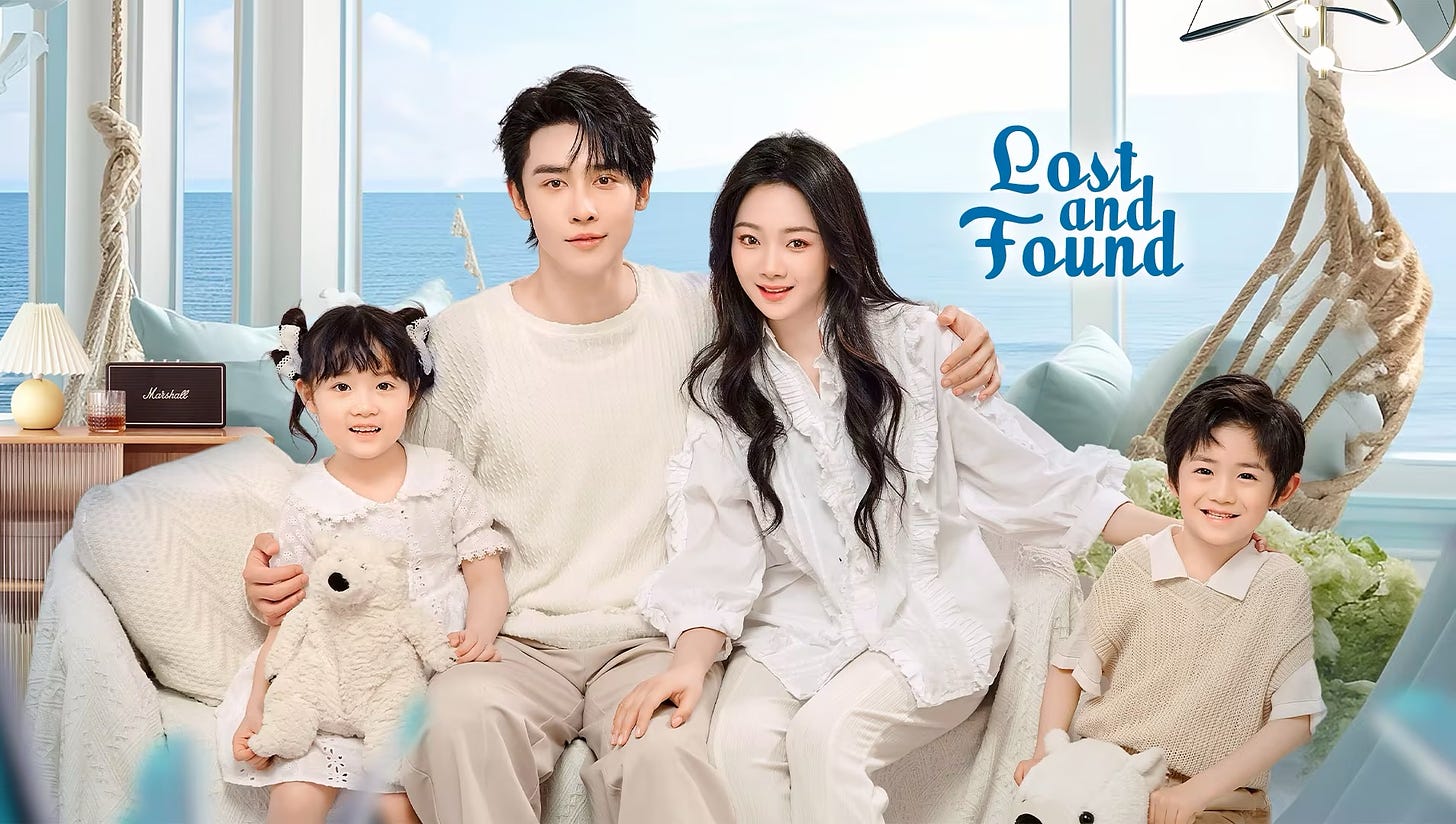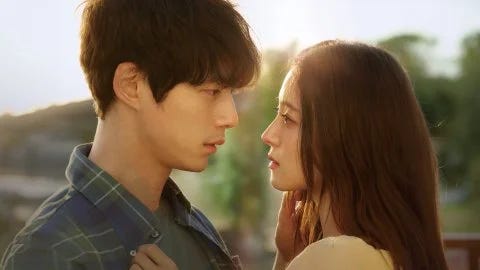There be major spoilers for Kill Me Love Me…
Disappointment wasn’t what I felt when expectations weren’t that high to begin with. Kill Me Love Me ended with a whimper last week. On my part I didn’t have too many issues with the ending in light of the story the showrunners wanted to tell. From what I’ve heard the adaptation deviated quite heavily from the book which incurred the ire of some fans. A bittersweet ending is at least an ending and all things considered it’s not a bridge too far. The show had problems certainly even from the point of view of someone who had no knowledge of the source material going into it and on hindsight a large part of it had to do with the fact that it was trying to walk a number of fine lines but pleasing few in the end.
As I’ve said elsewhere, tropes are familiar territory. They’re safe for the C drama writer but rarely are they used sparingly… or wisely. After a while it was more fun counting them and watching how many are being squashed into 30 episodes. For a country that can’t do art without worrying about Big Brother breathing down collective necks, it’s not hard to see why it’s so much easier to default to what they know can skirt the snare of the censor’s chopping block.
It starts off not too badly. The potential is there for a decent even occasionally riveting story. A prince wrongly accused of killing civilians in an altercation that went wrong wants justice. He’s understandably wrathful and will use any means at his disposal to get it. Even if it means using an equally vengeful survivor of a massacre as his pawn, getting her to do his bidding with poison. Of course he never intends to fall for her — that’s not in his game but it wouldn’t be much of a story if he didn’t nor if the feeling becomes mutual. Storywise I don’t have a problem with his use of poison to control her as the puppet master behind the Shadow Works.
Things get complicated because the hostage prince Yue Qing from a neighbouring country called Xiyan likes the look of Mei Lin. His gratitude towards his benefactor has apparently evolved into love over time. We’re led to believe that he’s in love with Mei Lin and thinks he has her best interest at heart. At the same time his sister makes her way to Yan as a peace bride to the emperor — our hero’s not-that-young father.
From the time the show introduces Zigu, it goes sideways for me. I know I can’t take the show seriously. She’s meant to bring the fluff to the table and even manages to fall for the older-than-Colonel-Brandon emperor. The older man and younger woman trope is all the rage among the douyin dramas. Some couples pull it off better than others but there’s no denying that they’re churning out these stories like there’s no tomorrow. A character like Zigu should have been dead by the fifth episode in concert with the darker tone of the rest of the show.
It seems to me that the show is saying that at the end of all the angst and melodrama that some things aren’t meant to be. Mei Lin shouldn’t have survived the Qingzhou massacre but she did. Under the circumstances the leads shouldn’t have fallen in love but they did. Zigu shouldn’t have wasted her her short life on a much older man. Even Yue Qing gets a good drubbing for his hubris. Which he does deserve. At the end of the day Mei Lin was always living on borrowed time getting a brief taste of wedded bliss. Mei Lin the character, the plot device is the wild card in the big picture.
What I really didn’t care for is how lightly the crown prince, Murong Xuanlie (Baron Chen)n got off for his misdeeds. After all the build up about the terrible thing he did to grab the throne, he gets a mere rap across the knuckles for being a very naughty boy. Execution by poisoning. The rap sheet is a long one and he doesn’t even suffer a fraction of the public humiliation for all his troubles that his brother had to contend with for a decade and he was innocent of the crime. It doesn’t help too that he often comes across as a bit of a whiny crybaby throwing an almighty temper tantrum.
There’s a lot to criticise about how the plot unfolds. I never took to Yue Qing who was too complacent and naive for someone who had cut his teeth in the furnace of palace politics. The narrative has too many fillers and the pacing is all over the map. Still I have to give the actors their due. Liu Xueyi, Wu Jinyan and Baron Chen most especially. Liu Xueyi is decidedly brilliant. Good looks notwithstanding, the man is an acting powerhouse. A natural in the craft. Whatever he’s in, he somehow manages to elevate the material because he gets into character seemingly with the greatest of ease. In the end it was for the joy of watching him that I stayed to the very end (with some discretionary use of the 1.5 speed facility).
Speaking of tropes and douyin dramas, I’ve been watching one called Lost and Found and mainly for the male lead, Shen Haonan, a hugely popular douyin actor who has found his way into better productions on WeTV and Youku of late. There’s more money involved certainly but the scripts aren’t that much better than the familiar trope-riddled projects that he’s been associated with in his career. He’s a pretty man undoubtedly — one of the prettiest and he’s generally got good chemistry with his lady leads. In Lost and Found, he’s been on the hunt for a woman (Wen Moyan) he fell head over heels for some years earlier. She’s reappeared with a different identity and no memory of their explosive liaison in Thailand. There are also twins involved. Needless to say in a short space of 4 or 5 short episodes, they’ve chucked in every trope you can conceive of in this type of story.
It’s junk food made with the usual addictive ingredients.
In a similar theme about separated couples but far less nutty, is Lee Se-young’s latest What Comes After Love. Normally I would review this type of show on its own because it is a superior beast than all the other ones I’ve mentioned so far. To be fair it’s the sort of angsty post-separation story that I have an unhealthy affection for. Two people with different personalities, nationalities and backgrounds meet, fall in love, go their separate ways and then via the mysterious hand of fate, meet again. It’s practically love at first sight but it takes another two or three encounters before they start seeing each other regularly and seriously. Lee Se-young’s character, Hong is a Korean student who sojourns to Japan on a whim in all likelihood to dodge the scrutiny of her protective mother. She meets Jungo (Sakaguchi Kentaro) an aspiring writer on her first day back in Japan. Then later again when they’re both battling for the same part-time job. Quicker than you can say John’s Brown baby, they start dating cheered on by well-meaning colleagues and very soon she moves into his apartment.
Despite the best of intentions, the cracks start to show. There’s no third party running interference here. The pair are their own worst enemies and need no help from others. Immaturity is a feature of this landscape. Hong is on her own in a foreign country even while she is fluent in the lingo comes to rely on Jungo for companionship. Jungo, on the other hand, is busy trying to build his career and grab every opportunity that he can to get somewhere with his ambitions. Hong is bubbly and extroverted. Jungo is reticent and introverted. Unspoken and unmet expectations deepen the fissures which see Hong running back home to Korea as a result of a family emergency.
Their story is told through flashbacks after the initial set-up of the way they were. It’s five years later and they meet again in Korea after the publication of his novel of the same name. He’s in Seoul to promote the book and her father happens to be his local publisher. It’s all very awkward and feelings that she thought she had buried deep resurface. The old wounds have never healed. There’s never been any closure for either in part due to her hasty departure characterised by a Dear John letter and in part due to him making little effort afterwards to reconnect. The long and the short is that neither had moved on and couldn’t as a result of unresolved issues.
While communication is a large factor in what went wrong, it isn’t just that. The leads communicated but not as honestly or deeply as they could have. The heady days of attraction didn’t mature into something that could survive the test of time because of the assumptions and baggage each were carrying around. Hong was insecure and Jungo didn’t have the wherewithal to deal with that side of Hong. In South Korea she was constantly surrounded by a noisy but loving family. He was abandoned by his mother at a young age. For their bond to go the distance, they had to get down to the nuts and bolts of who they were as individuals. That’s why it is often said that long- term relationships is a lot of hard work. Indeed asking the right questions and saying the right things at the right time requires thought.
Lee Se-young and Sakaguchi Kentaro are terrific. The chemistry is captured beautifully by the camera. 6 episodes is fine (I’m a big fan of J drama minimalism) although I wouldn’t have minded a seventh. It has a lovely occasionally moody aesthetic. Wonderfully artistic in its storytelling — plenty of slo mo to soak the audience in the atmosphere. Best of all it’s affordable relationship counselling for the price of a monthly subscription at Viki. If you can get it.
If you found this post useful, please like, share, subscribe and leave a comment. Thanks for swinging by.






Thanks as always for your reviews. A while ago, you recommended "Tree with Deep Roots" to me, and I wanted to thank you! I'm 7 episodes in, and it's completely engrossing. It demands close attention, but the plot is unfolding so beautifully. There's plenty of action and intrigue, but also a good dose of humor—especially with our ML’s sidekicks constantly getting everything wrong. And how wonderful to realize that the King is played by none other than Han Suk-kyu, a.k.a. Dr. Romantic! I'm also intrigued by the FL being mute, having to write everything down, even in the dirt if needed. No romantic subplot yet (which is fine by me), but the actress is amazing, conveying so much without any lines.
On another note, are you watching "Jeongnyeon: The Star Is Born"? Kim Tae-ri is delivering an extraordinary performance as the country mouse destined for greatness. The story is far simpler and more trope-y than "Tree with Deep Roots", but it still delivers in both big and small moments.
And over in CDrama land, I'm looking forward to "The Story of Pearl Girl", mainly because it stars my favorite, Zhao Lusi, who won me over in Love Like the Galaxy!
Thank you! 😄That sums up neatly all the issues and frustrations a neophyte to contemporary cdrama like me had with KMLM! Indeed, Liu Xueyi, (since In Blossom and The Blood of Youth) as always, is a wonder to watch, especially in his scenes here with Wu Jinyan; and for most of the rest, FF thankfully is on hand!😁